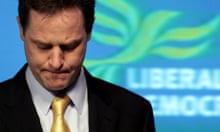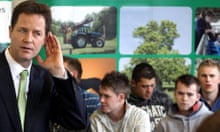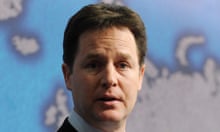I still cringe when I remember what happened on the school bus. The shame of it still lingers.
We were all travelling together - a class of 17-year-olds from my school and our German "exchange" partners - on an excursion to the Bavarian mountains. The German teenagers had already endured a month at our school in central London. Now it was our turn to spend a month in Munich, living with our "exchange" families and attending the local school.
A boy called Adrian started it. He shouted from the back of the coach, "we own your country, we won the war". Other boys tittered. One put a finger to his upper lip - the traditional British schoolyard designation for Hitler's moustache - threw his arm out in a Nazi salute, and goose-stepped down the bus aisle. Soon there was a cascade of sneering jokes, most delivered in 'Allo 'Allo German accents.
I remember two things vividly. First, none of the girls in my class joined in. It seemed to be a male thing. Second, the German schoolchildren did not appear angry, or even offended. That was what was so heart wrenching. They just looked confused, utterly bewildered. To a generation of young Germans, raised under the crushing, introspective guilt of postwar Germany, the sight of such facile antics was simply incomprehensible.
I looked nervously to Bernhard, my German exchange partner sitting next to me in the bus. I could see he wanted to turn and face the commotion. Instead, he sat rigid, staring silently ahead. The next day, as we were walking to school, I lamely apologised to him for what had happened. I was miserable that I had not had the courage to protest in the bus on his behalf. Such is the power of teenage peer pressure. He stopped, and explained. He said he felt he had no right to react himself. It was part of the shame he was obliged to bear on behalf of his parents and grand parents. Such is the power of collective guilt.
All this came to mind last week when I read of the plight of Mr Puhle and Mr Sawartzki, two Germans employed at Motorola's international call centre in Swindon. They were so upset by the barrage of anti German jokes from their British colleagues - "they used to call us fucking Germans and sing songs about Hitler", said Mr Sawartzki - that they were forced to leave their jobs. But at least they didn't take it lying down. They have decided to take their employers to an industrial tribunal. Good on them.
It is easy enough to explain the mixture of arrogance and insecurity that fuels this peculiar British obsession. Watching Germany rise from its knees after the war and become a vastly more prosperous nation has not been easy on the febrile British psyche. John Cleese struck a chord in the Fawlty Towers episode The Germans, in which a concussed Basil Fawlty bombards his earnest German guests with a volley of jokes about the war.
But humour on telly is one thing. Hounding Germans out of work half a century after the last war is altogether different.
Even worse, a warped view of Germany also seems to prevail in Britain's top boardrooms. In an oafish article published last week in the Financial Times, Martin Taylor, the chairman of WH Smith, declared that Germany, in cahoots with France, remains one of our principal rivals. He dismisses the idea that Germany is a partner, "a weasel word", and concludes - as if he were Jeremy Clarkson - "France is for holidays, Germany is for cars". His view of the EU is that of a schoolboy's military board game. I'm surprised he didn't suggest that we should settle it all in a game of conkers.
The latest twist to this anti-German mania is a gloating satisfaction at Germany's recent economic woes. With tedious predictability, one British pundit after another occupies acres of newspaper space to tell us that the German economy is a busted flush, that only a vigorous dose of Anglo Saxon reforms will do the trick, that German economic weakness spells the end of the euro. And so on. Even New Labour ministers, Gordon Brown in particular, crow about comparative British economic success with more than a hint of condescension towards Germany and the rest of the EU.
They all blithely overlook that Germany's wealth per head remains a full 6% higher than in the UK. That German workers are 29% more productive than their British counterparts. That German trade with other EU countries has shot up in recent years, while Britain's trade with the euro zone stagnates. That Germany has engineered one of the world's most ambitious economic transformations in the former East Germany. Not even the most blinkered British visitor to Germany's prosperous towns and cities, to its schools, hospitals and its transport system, could pretend that our quality of life is comparable to German standards.
All nations have a cross to bear, and none more so than Germany with its memories of Nazism. But the British cross is more insidious still. A misplaced sense of superiority, sustained by delusions of grandeur and a tenacious obsession with the last war, is much harder to shake off. I wish Mr Puhle and Mr Sawartzki well. We need to be put back in our place.







